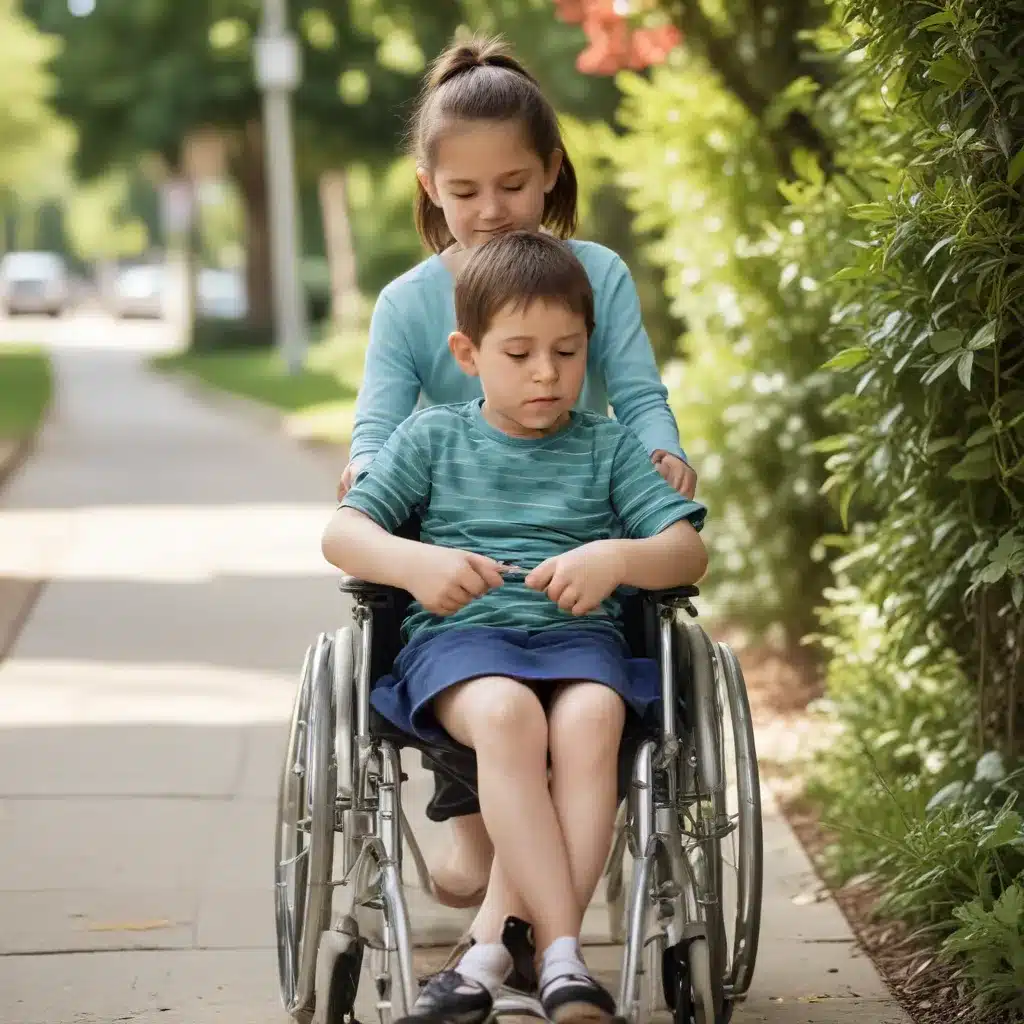
As a school community, we understand the challenges and responsibilities that come with caring for a child with disabilities. Navigating this journey can be both rewarding and demanding, requiring immense dedication and resilience from caregivers. In this comprehensive article, we will delve into the often-overlooked aspects of caregiver burden, explore strategies to alleviate the strain, and highlight the invaluable support available to families at Stanley Park High School.
The Realities of Caregiver Burden
Caring for a child with disabilities can have a profound impact on the physical, emotional, and social well-being of the primary caregiver, often a parent or family member. A recent study published in the Journal of Developmental and Physical Disabilities revealed that 41% of caregivers reported their health had worsened over the past year, attributing this to a lack of time, a lack of control, and decreased psychosocial energy.
The demands of caregiving can be relentless, with caregivers often needing to juggle medical appointments, therapies, and daily care routines, while also attending to the needs of other family members. This constant pressure can lead to feelings of stress, burnout, and social isolation, as caregivers struggle to find a balance between their caregiving responsibilities and their own self-care.
“The stress of caregiving never goes away. It’s a 24/7 job, and it takes a toll on my physical and mental health. I often feel like I’m neglecting my own needs in order to meet the needs of my child.” – Parent of a child with disabilities
Navigating the Emotional Landscape
Alongside the physical strain, caregivers often face a complex emotional journey. The worry and uncertainty about their child’s future can be a constant source of anxiety, compounded by the grief and loss associated with the child’s condition. Caregivers may experience a range of emotions, including frustration, guilt, and even resentment, which can be challenging to acknowledge and address.
“I feel guilty for sometimes wishing I could have a ‘normal’ life again, but then I immediately feel ashamed for even thinking that. My child’s needs will always come first, but I worry that I’m neglecting my own emotional well-being in the process.” – Parent of a child with disabilities
Developing effective coping strategies, such as seeking counseling, joining support groups, or engaging in self-care activities, can be crucial in managing the emotional toll of caregiving. By prioritizing their own mental health, caregivers can better navigate the complexities of their role and provide the best possible care for their child.
The Importance of Shared Responsibility
While the primary caregiver often bears the brunt of the day-to-day responsibilities, it’s essential to recognize the value of a shared caregiving network. Involving extended family members, friends, and community resources can help distribute the workload and provide much-needed respite for the primary caregiver.
“Having my parents and siblings help out with transportation, meal preparation, and even just giving me a break to recharge has been a game-changer. I don’t feel so alone in this journey anymore.” – Parent of a child with disabilities
Exploring options like respite care services, in-home nursing support, or even the use of social assistive robotics (as discussed in a recent study) can offer caregivers valuable relief and the opportunity to address their own well-being.
Empowering Caregivers, Supporting Families
At Stanley Park High School, we recognize the crucial role that caregivers play in the lives of children with disabilities. We are committed to providing a comprehensive support network to help alleviate the burden and empower families throughout their journey.
Caregiver Support Groups and Workshops
Our school community offers a range of support groups and workshops specifically designed for caregivers. These sessions provide a safe space for sharing experiences, learning coping strategies, and connecting with others who understand the unique challenges of caregiving. Facilitated by experienced professionals, these gatherings aim to foster a sense of community, reduce feelings of isolation, and equip caregivers with the tools they need to prioritize their own well-being.
Respite Care and Resource Coordination
We understand that accessing respite care and coordinating resources can be daunting tasks for busy caregivers. That’s why we have a dedicated team of social workers and case managers who can assist families in navigating the complex landscape of support services, from in-home nursing to specialized therapies. By helping to coordinate and arrange these vital resources, we aim to alleviate the burden and empower caregivers to focus on their family’s needs.
Educational Workshops and Advocacy Support
Recognizing the importance of empowering caregivers with knowledge and advocacy skills, we offer a series of educational workshops on topics ranging from navigating the special education system to understanding their child’s specific disability. Additionally, our team provides guidance and support in advocating for their child’s rights and accessing the necessary accommodations and services.
Community Connections and Collaborative Partnerships
To further support our caregiver community, we have forged strong partnerships with local organizations, healthcare providers, and community groups. These collaborations allow us to connect families with a robust network of resources, including support groups, recreational activities, and specialized care services. By fostering these connections, we aim to create a comprehensive safety net that empowers caregivers and ensures their children receive the best possible care.
Embracing the Journey, Together
Caring for a child with disabilities is a profound and often challenging journey, but it is one that no family should navigate alone. At Stanley Park High School, we are committed to supporting our caregiver community and providing the resources, guidance, and empathy they need to thrive.
By acknowledging the realities of caregiver burden, addressing the emotional complexities, and fostering a shared sense of responsibility, we hope to empower families and pave the way for a more inclusive and supportive community. Together, we can overcome the obstacles, celebrate the triumphs, and ensure that every child with a disability and their caregiver receive the care, support, and recognition they deserve.

